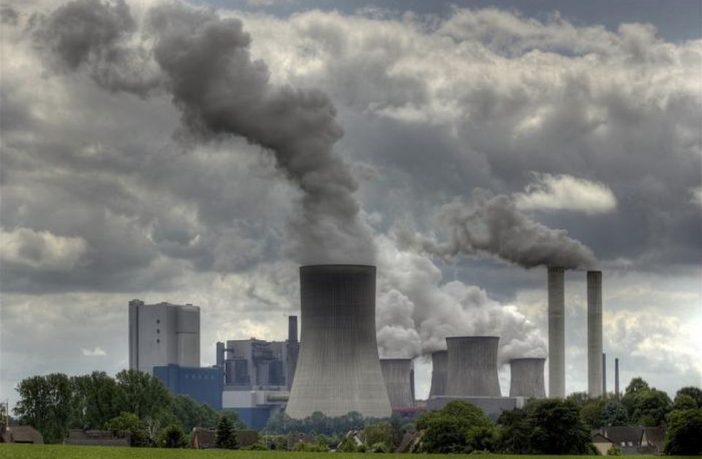Open Ed
UN Secretary-General António Guterres has, once again, exhorted world leaders to end our deadly addiction to coal. Speaking at a Powering Past Coal Alliance event, the secretary-general urged all nations to:
- Cancel all coal projects in the pipeline.
- The top Organisation for Economic Co-operation and Development (OECD) nations, in particular, are encouraged to take the lead on this priority;
- End international financing of coal and provide greater support to developing nations to help them transition to zero-carbon energy sources; and
- Develop a plan to start working on the just transition.
Guterres further stated that “phasing out coal from the electricity sector is the single most important step to get in line with the 1.5-degree goal.”
It is important to understand just why coal is so toxic. Electricity and heat production account for roughly 25% of all greenhouse gas emissions in the world today, followed by industry (about 18%), transportation (about 14.3%) and agriculture (about 14%). The major economies produce most of their electricity/heat from coal and between them, China, the USA, India, Russia and Japan dump a staggering 20 billion metric tons of CO2 into the atmosphere every year.
We all know what the consequences are when that much CO2 is dumped into the atmosphere: rising sea levels, increase in frequency and intensity of extreme weather events, forest fires of biblical proportions, droughts, exponential increase in plant diseases and crop failures, growing numbers of health conditions, etc.
Some countries are sinking while others are getting unbearably hot. Every year, insurance companies are ending coverage for large parts of major cities around the world.
Suddenly, farmers are realising that they cannot plant certain crops anymore because it’s either too hot or too cold. Africa’s hottest years on record have all come over the last two decades…
These problems will continue to worsen. Ironically, since the signing of the Kyoto Protocol, emissions have been going up, not down. This is because countries like China and India have significantly increased their coal fleets over the past two decades to power industries within a fast-track development logic. They want to torch the planet on their way to the age of mass consumption before they go green. Crazy logic!
China for example has pledged to achieve “carbon neutrality” by 2060 in some nice PR announcements, and yet, it is busy constructing 88.1GW of coal-fired electricity capacity at this very moment. Paradoxically, it is installing some of these toxic plants to keep up with global demand for cheap solar panels, EV batteries and wind turbines. They are not interested in installing solar and wind capacity to produce more solar panels, they just want the cheapest option, the planet’s health be damned.
When it made commitments to reduce its CO2 emissions, South Africa admitted that its emissions would go up before going down. Virtually all the country’s power is generated by coal power plants. TheDepartment of Mineral Resources and Energy states on its website that:
“South Africa’s indigenous energy resource base is dominated by coal … About 77 percent of South Africa’s primary energy needs are provided by coal. This is unlikely to change significantly in the next two decades owing to the relative lack of suitable alternatives to coal as an energy source.”
And yet, we know that South Africa has been severely impacted by drought and heat issues recently.
To further unpack António Guterres’ recommendations, when the world met in France for the Paris Agreement, a decision was made to keep warming below 1.5°C, in line with the recommendations of the Intergovernmental Panel on Climate Change (IPCC). The world also acknowledged at the time that we share a common destiny. Greenhouse gases do not remain within the borders of the polluting country when they are dumped into the atmosphere. No, they rise up and spread out and the burden is shared equally by all countries.
That is why we all need to do more to get offending countries to change their ways. It is very important to coordinate lobbying efforts, using a carrot and stick approach, to get major polluters to go green. If countries do not agree voluntarily to curb emissions, international alliances and coalitions need to get them on the right path.
Secondly, many major financial institutions that have been making pronouncements about supporting the environment hold stocks in coal mines and fossil companies. The Guardian’s Patrick Greenfield has reportedfor example that “the world’s largest investment banks have provided more than $700-billion of financing for the fossil fuel companies most aggressively expanding in new coal, oil and gas projects since the Paris climate change agreement, figures show.”
JP Morgan Chase, Barclays, Wells Fargo, Bank of America… the usual suspects. These same organisations spend a lot of time greenwashing and putting out advertising about their love for the planet. They need to be named and shamed if they do not change their ways. If we have to expand cancel culture, this would be a good place to start.
Finally, the just transition. One of the biggest reasons that the debate around transitioning to low-carbon economies is so sensitive is because it is directly tied to jobs. We must recognise that every time a coal mine is shut down, people lose their jobs. In some cases, the entire town where the mine was located dies. Then you have depression, suicides, people trapped in a poverty cycle, and on and on. In other words, there are real-life consequences behind every mine closure. That is why some workers see every new green project as a direct threat to their jobs.
To work around these concomitant challenges, proper discussions have to take place. We should not assume that all stakeholders have the same understanding of the issues. All stakeholders must work together to spell out the advantages and disadvantages of green energy. They must answer questions like do windmills cause cancer (Donald Trump would love to know the answer to that question, actually), what happens when the sun does not shine, and so on.
Proper plans must be put in place to reskill workers and get them ready for the jobs of the future. That way, workers are less anxious about losing their jobs and mining towns are reassured that they are not necessarily doomed to become ghost towns.
The bill on our destructive ways has already come due and we must start acting with urgency to pay up!
Author: Dr Roland Ngam
Dr Roland Ngam is programme manager for climate justice and socioecological transformation at the Rosa Luxemburg Foundation, Southern Africa. Views expressed are not necessarily those of the Rosa Luxemburg Foundation.
















